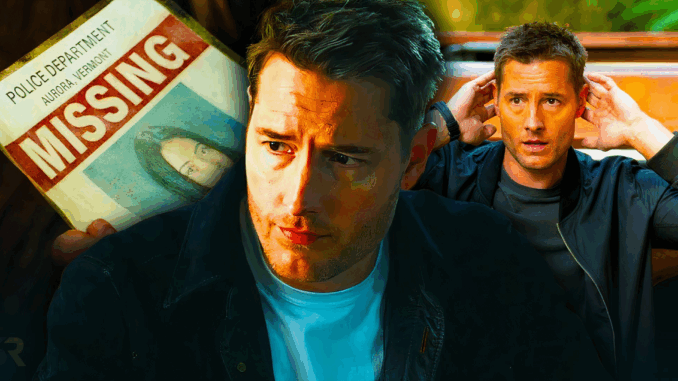
In the world of Tracker, justice isn’t confined to the courtroom, and the rule of law doesn’t always lead to fair outcomes. Colter Shaw operates in the gray areas—outside law enforcement, beyond formal jurisdiction, and sometimes in direct opposition to the authorities. This tension raises compelling questions: What is justice? Who gets to define it? And what happens when systems fail the people they’re meant to protect? This article explores how Tracker redefines traditional morality and authority, positioning Colter as a modern-day vigilante guided more by conscience than by code.
Beyond the Badge: A Civilian in a Lawman’s World
Colter Shaw is not a police officer, FBI agent, or bounty hunter. He’s a civilian—a “rewardist,” as some call him—who takes on cases where families offer cash rewards for missing loved ones or unsolved crimes. This premise alone separates Tracker from typical crime procedurals. By placing Colter outside the official justice system, the series frees itself from legal constraints and explores alternative forms of justice.
Colter often enters a town where local authorities have stalled, dismissed, or misread a case. His presence disrupts the hierarchy. Some officers respect him; others resent or distrust him. This dynamic creates immediate conflict but also highlights a deeper theme: institutions don’t always get it right, and sometimes, those on the outside see the truth more clearly.
Moral Compass or Mercenary? The Ethics of a Rewardist
The idea of taking cash for finding missing persons sounds opportunistic on paper. Yet, Tracker subverts this expectation. Colter rarely cares about the money. He turns down payment more often than he accepts it, and even when he does take the reward, it’s clear that he’s driven by something more personal—a sense of justice rooted in his own past.
Still, the show doesn’t let him off the hook. In several episodes, characters challenge Colter’s motivations. Are his methods always ethical? Does his involvement make things better or worse? Is justice served if due process is ignored?
By raising these questions, Tracker refuses to offer simple answers. Instead, it invites viewers to consider the cost of doing good outside the law—and whether morality can be separated from legality at all.
Law Enforcement as a Flawed Institution

While Tracker features many capable and honorable law enforcement characters, it also doesn’t shy away from portraying systemic failure. From corrupt sheriffs to overwhelmed detectives, the series critiques how bureaucracy, bias, and politics can derail justice.
One standout episode involves a small-town police department that refuses to investigate the disappearance of a homeless veteran. They write him off as a drifter, unworthy of resources. Colter’s intervention forces them to confront their apathy—but only after he uncovers a larger conspiracy.
Episodes like this show how justice can be unevenly applied, and how certain lives are valued less than others by institutions. Through these stories, Tracker offers a sharp social commentary wrapped in gripping storytelling.
The Power of Individual Conscience
What truly sets Tracker apart is its belief in the power of individual conscience. Colter may bend the rules, but he rarely breaks his own moral code. He listens carefully, respects victims, and operates with empathy—even when it puts him at risk.
In one episode, Colter is forced to choose between turning in a teenage runaway to the authorities or helping her escape an abusive home. The legal path would be clear—but not the right one. Colter follows his gut, offering sanctuary instead of surrender. The episode ends not with triumph, but with the weight of a difficult choice—one the justice system was ill-equipped to handle.
This emphasis on conscience over codified law gives Tracker emotional depth. It doesn’t romanticize rule-breaking, but it does argue that justice requires more than just laws—it requires heart, judgment, and humanity.
Vigilantism or Heroism? The Thin Line
Tracker walks a fine line between portraying Colter as a noble outsider and a potential vigilante. The series is careful to avoid glorifying violence or rogue behavior. Instead, it consistently frames Colter’s actions as necessary responses to complex realities. He doesn’t seek revenge. He seeks truth—and sometimes, the truth lives outside the bounds of institutional power.
This ambiguity makes Tracker more than just a procedural. It becomes a philosophical drama, exploring what happens when good people are failed by the systems meant to protect them. Colter’s methods are unconventional, but the show trusts viewers to grapple with that ambiguity.
Human Stories, Not Just Legal Outcomes
While legal procedurals often focus on courtrooms and convictions, Tracker is more concerned with closure, understanding, and emotional resolution. A missing child found alive. A grieving mother who finally learns the truth. A wrongful accusation cleared. These are the victories the show celebrates.
By doing so, Tracker subtly shifts the definition of justice. It’s not always about punishment—it’s about peace, accountability, and truth-telling. Colter’s brand of justice may be unorthodox, but it often succeeds where traditional methods fail.
Conclusion
In Tracker, justice isn’t delivered in a courtroom—it’s found on dirt roads, in abandoned houses, and within the broken hearts of those left behind. The show offers a bold reimagining of morality and authority, challenging viewers to rethink what it means to do the right thing when the rules don’t work.
Colter Shaw may not wear a badge, but he carries a deep sense of responsibility—a quiet, unwavering commitment to help those who have been forgotten. In a world of black-and-white laws, Tracker thrives in the gray, reminding us that justice, at its best, is deeply human.
